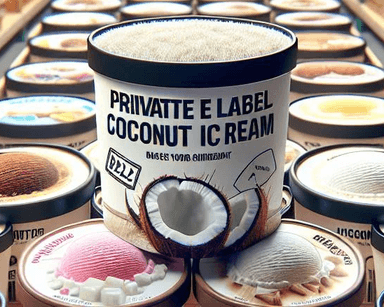What are Frozen Waffles packaging options?
In the Frozen Waffles market, popular packaging options include bulk packs convenient for foodservice, retail-ready boxed packages, and custom private label solutions. These packaging types are designed to maintain the waffles' quality and integrity throughout transportation and storage, crucial for both large and small scale b2b transactions. Additionally, flexible packaging options help suppliers cater to diverse market needs, ranging from wholesale distribution to branded retail outlets.
What are the top Frozen Waffles producing countries?
When sourcing Frozen Waffles, the top countries to consider are Belgium, Germany, France, and Poland. These countries are renowned for their expertise as Frozen Waffles manufacturers and suppliers. With robust markets in Europe, these locations offer ample opportunities in the b2b sector, providing a diverse range of product options, including organic and premium selections. Whether you're looking for wholesale conditions or private label customizations, these countries have trusted suppliers ready to meet your sourcing needs.
Who are the best suppliers for private label Frozen Waffles in Europe?
The best private label Frozen Waffles suppliers in Europe include BEZGLUTEN sp. z o.o., Przedsiębiorstwo Produkcyjno-Handlowe "Okruszek" Tomasz Jarosiński, Makprogres - Vincinni and 14396. These Frozen Waffles companies are known for their premium Frozen Waffles, flexible private label services, and efficient production, meeting the growing demand for high-quality, customizable Frozen Waffles products.
What are the top certificates for Frozen Waffles?
For buyers sourcing Frozen Waffles, securing products with top certifications like IFS, GACC, FSSC 22000, and BRCGS offers assurance of quality and safety. Such certifications are pivotal when dealing in global markets, ensuring compliance with international standards. Whether you're dealing with wholesale or private label options, these certifications help ensure the products meet rigorous safety and quality benchmarks, facilitating trust with suppliers and enhancing the brand's market reputation.
What are the top Frozen Waffles trade shows?
Attending trade shows is an excellent way to explore the latest in Frozen Waffles, with major events occurring in key regions. Major European fairs such as ANUGA in Germany and SIAL in France showcase a wide range of suppliers and innovations within the category. These events provide valuable opportunities for networking and discovering new Frozen Waffles suppliers, from organic producers to private label experts, making them crucial for b2b buyers looking to expand their sourcing networks.
What are Frozen Waffles minimum order quantities (MOQ)?
The minimum order quantities (MOQ) in the Frozen Waffles category vary based on the type of order. For branded products, MOQs typically range from 1,000 to 5,000 units, suitable for standard wholesale purchases. In contrast, private label orders usually require larger MOQs, ranging from 50,000 to 100,000 units, reflecting the custom nature of these products. Understanding these MOQs is critical for buyers negotiating sourcing deals, especially when working with suppliers from top countries like Belgium and Germany.
What are the top Frozen Waffles trends in 2025?
Current trends in the Frozen Waffles market include an increasing demand for organic, vegan, and premium options catering to diverse consumer preferences. Suppliers are also expanding production capacities to accommodate bulk demands for foodservice and retail sectors. Furthermore, private label offerings are on the rise, providing businesses the flexibility to customize their products. These trends demonstrate a growing emphasis on differentiated and high-quality products within the b2b market, allowing businesses to stand out.
















